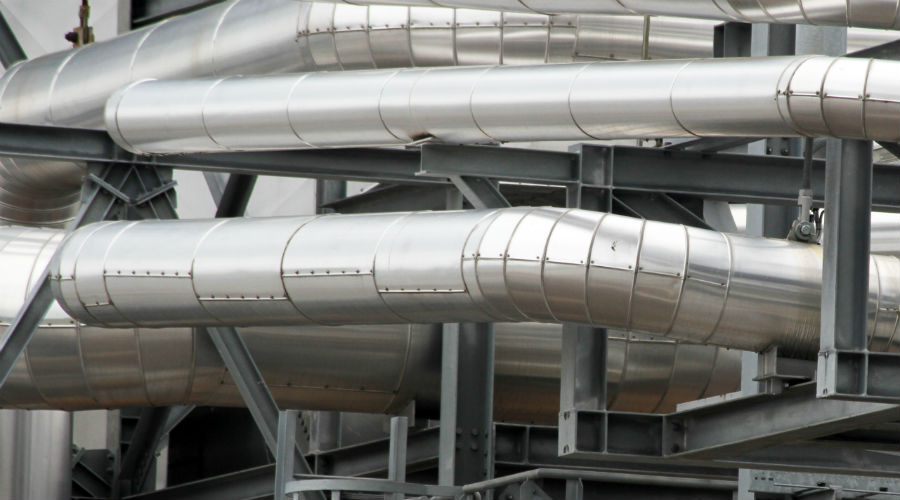After a year, the UK Governments have published their joint response to the March 2022 consultation on developing the UK Emissions Trading Scheme (UK ETS). We reported on this consultation and what it could mean for high-emitting sectors in a series of articles starting with Developing the UK ETS – the Road to Net Zero. Please refer to this for more detailed background.
A quick recap
The UK ETS was set up after the UK left the EU (and consequently the EU ETS). It is a scheme that places an annual cap on the amount of greenhouse gases certain sectors can emit. The cap reduces over time. If installations within the scheme emit over their cap, they must surrender allowances to the regulator. They can also sell surplus allowances if they emit below their cap. There are a certain number of free allowances allocated each year to those sectors most at risk of carbon leakage, to stop them moving their operations to another country where it may be cheaper to use carbon intensive processes.
The original consultation asked for views on reducing the cap over time to make it consistent with the UK's 'net zero' commitment and on reviewing the free allocation policy. It also proposed extending the scope of the UK ETS to other sectors including domestic shipping, energy from waste (EfW) and waste incineration.
Changes to the cap and free allocation
The original UK ETS allowance cap was too high to be consistent with net zero. It needed to come down. The consultation looked at a range for the cap that would still meet the net zero commitment. The Government has decided to reset the cap for 2021 to 2030 at the top of the net zero emission range (being 936 million allowances) from 2024 to ensure consistency with net zero. So this is as high a cap as they can get away with. To smooth the transition to the net zero cap and ensure there is no sudden drop in allowance supply in 2024, an additional 53.5 million allowances from the reserve pots will be released to market and auctioned between 2024 and 2027. These allowances have been created already in previous scheme years within overall cap limits and therefore do not impact the overall ambition.
The industry cap (the limit on the volume of allowances available to be given out for free) will be increased in 2024 from 37% to 40% of the overall cap, which the Government states is necessary for sectors at risk of carbon leakage and to enable flexibility for future decisions on distribution of free allowances. For further information on actions being taken by the Government on reducing carbon leakage, see our article on the March 2023 consultation which summarises the proposed policy measures to mitigate carbon leakage risk.
Current levels of free allocation will be guaranteed until 2026 and around 2.5 million allowances from the reserve will be used to mitigate the Cross-Sectoral Correction Factor (CSCF) between 2024 to 2026. (The CSCF is used to avoid where the eligibility for free allocation in a given allocation period exceeds the industry cap and applies a uniform reduction to all participants' free allocation). To assist with long-term market resilience and future CSCF mitigation, 29.5 million allowances (equivalent to 3% of the overall cap) will be reserved for future use.
Impact on aviation
For more detail on the proposals for aviation, see our Insight Developing the UK ETS – will it fly for aviation? The Government has decided to go with the early phase out of free allowances for the aviation sector from 2026. This decision was made based on evidence suggesting there is minimal risk of carbon leakage in the aviation sector. To ensure a smooth transition, aviation operators will continue to be entitled to free allocation that reduces at the existing fixed amount of 2.2% annually in 2024 and 2025, until full auctioning in 2026.
The Government has committed to continue developing proposals on how sustainable aviation fuel (SAF) is treated in the UK ETS and how non-carbon dioxide emissions should be brought within the scope of the UK ETS. It recently published a summary of responses received to the March 2023 consultation on introducing a SAF mandate and incorporating non-carbon dioxide emissions into the UK ETS and will consult further in due course.
Expanding the scope to cover shipping, waste and venting from oil and gas
The UK ETS scope will expand to include the following additional sectors, subject to further consultation on details of implementation:
- Domestic maritime transport (maritime vessels of 5,000 gross tonnage and above) to be included from 2026 – so the 'lead option' of vessel activity as discussed in our Insight. In comparison, the EU ETS will include emissions produced by maritime transport from 2024 – two years earlier. This prompted comments that the UK is falling behind the EU in the race to net zero.
- Waste incineration and energy from waste (EfW) to be included from 2028 (there will be a two-year initial reporting period from 2026, during which operators in the relevant waste sectors will be required to monitor their emissions, but will not be obliged to surrender allowances). The 2028 date was chosen as the earliest date that would balance the need to decarbonise the sector with the need to provide adequate notice to stakeholders. This way, the ETS expansion will be implemented after the other waste policies, such as the Deposit Return Schemes and the Extended Producer Responsibility scheme, have been introduced. The importance of alignment of the various waste policies was strongly advocated for by the respondents to the consultation.
The operator of the installation will be responsible for compliance. The Government aims to consult by the end of 2023 on the details of implementation. These will include proposals for MRV (monitoring, reporting and verification), mitigation of carbon leakage and how to calculate emissions. The Government has promised to explore in detail the implications of the policy on the costs of waste disposal, particularly for Local Authorities.
- Carbon dioxide venting from upstream oil and gas installations to be brought into the scope of the UK ETS from 2025.
Allowances will have to be surrendered in respect of "process emissions" - carbon dioxide emissions resulting from any process, using any technology, that removes carbon dioxide from the oil and gas and then releases it to the atmosphere via a vent or an unlit flare. The obligation will fall on operators of installations that vent more than 1,000 tonnes of carbon dioxide in "process emissions" and there will be no free allocation.
The inclusion of the above high emitting sectors, as discussed in our articles 'Extending the UK ETS to domestic maritime - will it be smooth sailing', 'Developing the UK ETS – should it include waste incineration and energy from waste?' and 'Developing the UK ETS - upstream oil and gas', aims to incentivise companies to cut their emissions and adopt cleaner fuels, environmentally friendly technologies, and more sustainable operating practices.
There will be further consultations on the details of implementing this for each sector later this year so we will keep you updated.
Additional proposals including greenhouse gas removal and biomass
The Government confirmed its intention to incorporate engineered greenhouse gas removal (GGR) technologies (such as direct air capture and carbon capture and storage) into the UK ETS and to further explore the possibility of including nature-based solutions into the system. See our Insight Developing the UK ETS – Potential Market for Greenhouse Gas Removals?
There will be a new tradable unit for negative emissions (a GGR allowance or credit). This will lead to greater liquidity in the ETS, but a number of issues remain:
- whether voluntary carbon codes (such as the Woodland Carbon Code and the Peatland Code) should be included,
- how to manage the supply and demand of credits and allowances in the system (Government is considering a reduction in the number of UK ETS allowances as GGR allowances are introduced into the market, to ensure that the overall cap and trajectory are maintained), and
- whether there should be an entirely separate market for GGRs.
Recognising that market-based solutions alone will not be sufficient to incentivise GGRs due to high costs of the technologies involved, , the Government announced in June 2023 an additional policy to support this sector: a negative emissions contract for difference (CFD) as its preferred business model to support investment into GGR projects. For further details, see our article 'UK government support for GGR technologies announced'.
It is also looking at nature-based GGRs. These types of projects pose additional questions, such as how to account for the levels of permanence, mitigate the risk of reversals and ensure accuracy of MRV across different types of projects. A consultation later this year will explore potential market designs, eligibility criteria, phasing GGRs into a market, the role of voluntary carbon markets in creating demand for GGRs and the impact of including GGRs on the UK ETS, its participants and the carbon price.
The Government will determine how best to expand the scope of the UK ETS to include non-pipeline modes of transportation of carbon dioxide (including shipping, rail, and road) and what other uses of carbon dioxide, beyond its permanent storage, may be suitable for inclusion in the system.
The Government also confirmed that it will consult before the end of 2023 on introducing UK ETS biomass sustainability criteria for all biomass to increase understanding of its impacts upon markets and operators. See Developing the UK ETS – Biomass and AD for more details.
Finally, part of the original consultation was a call for evidence on how agriculture and land use emissions can be suitably measured, reported and verified: see Developing the UK ETS – How to measure emissions from agriculture and land use? Only 18% of respondents said that they currently use carbon audit tools. The most common barriers to implementing MRV in agriculture and land use were cost, lack of incentives, lack of standardisation and concerns about the accuracy of data.
Although it is not proposed to include agriculture in the UK ETS at this time, the Government will use the findings of the consultation to plan approaches to MRV across the sector and the next steps. Eventually it is hoped to develop a standard carbon measuring tool for farmers which will help them make informed choices about reducing emissions and seizing opportunities to store carbon, using a combination of private investment and new government support schemes.
What's next?
Look out for further consultations by the end of 2023 to develop and set out key details of the UK ETS expansion, GGRs, market reforms, biomass sustainability criteria, and the free allocation policy.
The Government will also publish its vision for the long-term development of the UK ETS by the end of the year, which will include its intention to introduce legislation to continue until at least 2050 and consider the expansion into more sectors.
Conclusion - Impact on businesses
Increasing the UK ETS cap and releasing additional allowances to the market will give businesses more time and support to cut their emissions, decarbonise and adopt cleaner fuels. Expanding the scope of the scheme will incentivise more sectors to contribute to net zero. There will be more opportunities for companies in the GGR sectors, as a new market for carbon dioxide removals is created and investment into these technologies is supported.
That said, the Government's decision was criticised in some circles for watering down the UK's efforts to decarbonise and falling behind the EU in climate ambition by offering too many allowances to polluting industries. In response to the publication, the price of UK ETS allowances dropped, causing them to trade at a large discount compared to the European allowances.
In the short term, the lower carbon price will ease the pressures on the businesses, but they should start assessing how these changes will impact their current and future operations and ensure that they stay up to date as further details of the changes are released. In particular, those operating in the domestic maritime transport, waste incineration and EfW, and upstream oil and gas installation industries, will need to carefully consider the impact of being included in the UK ETS to ensure they are able to meet any challenges and mitigate risks.






